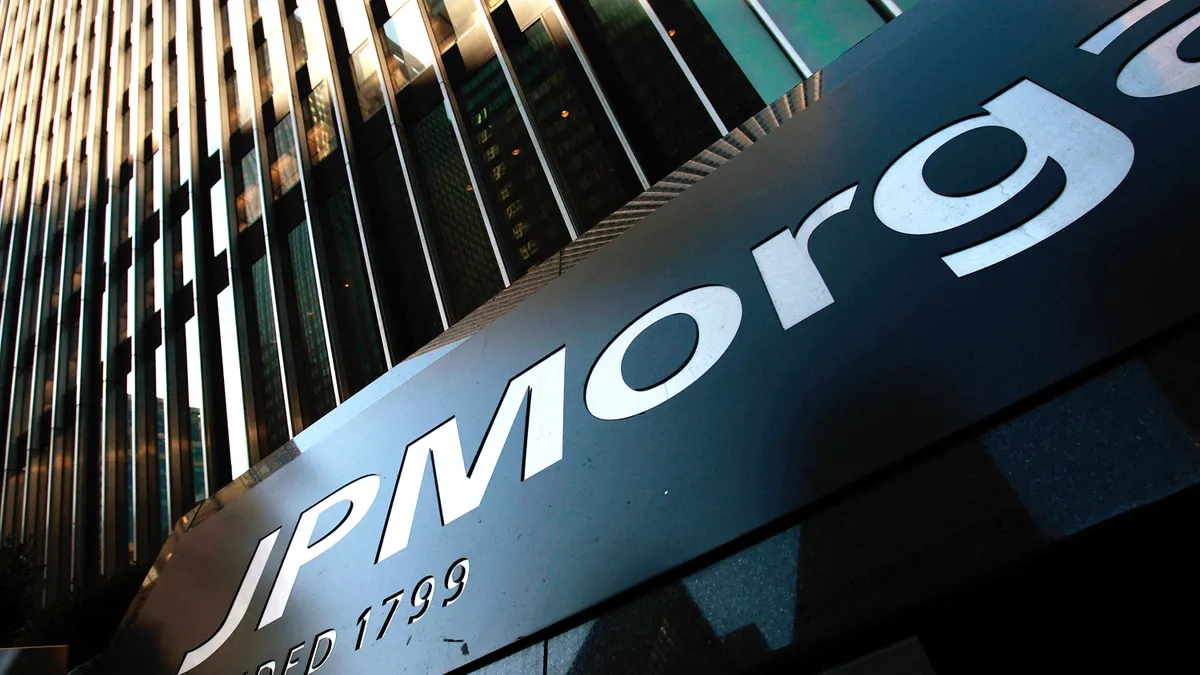Despite fresh data Thursday indicating the U.S. economy is shrinking, Head Economist at JPMorgan Commercial Banking Jim Glassman remains in the optimist’s camp: he doesn’t expect a recession in the next year or two and is buoyed in part by still steady business capital spending.
The U.S. Commerce Department reported a 0.9% drop in the gross domestic product annual rate in the second quarter, a smaller decrease than the 1.6% seen in the first quarter, amid an upturn in exports and a smaller decline in federal government spending offset by larger declines in private inventory investment, state and local government spending, and downturns in nonresidential fixed investment and residential fixed investment. The move came after the Federal Reserve on Wednesday raised its interest rate by .75 basis points as it continued its bid to tamp down runaway inflation.
“I don’t expect a near-term recession. It would only happen if inflation became such a problem that the Fed would decide to be more restrictive,” Glassman said in an interview Wednesday. In an email Thursday he confirmed he was unmoved by the new data. “Today’s news doesn’t alter my view. And the Fed’s caution (sensitivity) to incoming news, now that [Federal Reserve Chair] Mr. Powell acknowledged that policy is relatively neutral, reinforces that,” Glassman wrote in an email Thursday.
Like many economists, he acknowledged that the economy is currently sending unusually mixed signals, with negative indicators such as the decline in the GDP in the first half and soaring inflation but industrial production, hours worked and employment all up. But, while businesses are cautious they “don’t appear to be bracing for a broader contraction,” he said.
One data point that particularly buoys Glassman’ outlook is overall business capital spending, which has remained at a relatively high level of 13.48% of GDP, about even with 13.47% in the first quarter, he said. The ratio of overall business capital investment typically falls to 11.5% of GDP in recessions and the current 13.4% capex percent level of GDP has rarely been exceeded, according to Glassman.
Glassman said the GDP was expected to soften but the capex number reported today is a welcome positive sign. “If behind the scenes you’re looking at decent capital spending, that tells you a lot about the outlook of the business community. It would be unusual for business capex to be moving along steadily if in fact folks were hunkering down for a recession,” he said.
To be sure, the barrage of mixed data and news tracking the economy’s struggles has affected financial executive’s outlook, Glassman acknowledged. Indeed, a recent JPMorgan survey found the percentage of CFOs, CEOs and other executives who were optimistic about the U.S. economy in the year ahead fell to 19% from 75% a year ago, a 12 year low.
But Glassman believes that measure is related to the general business conversation about prospects for the economy as a whole rather than their own businesses, noting that the study also found that businesses were more optimistic about their own prospects.













